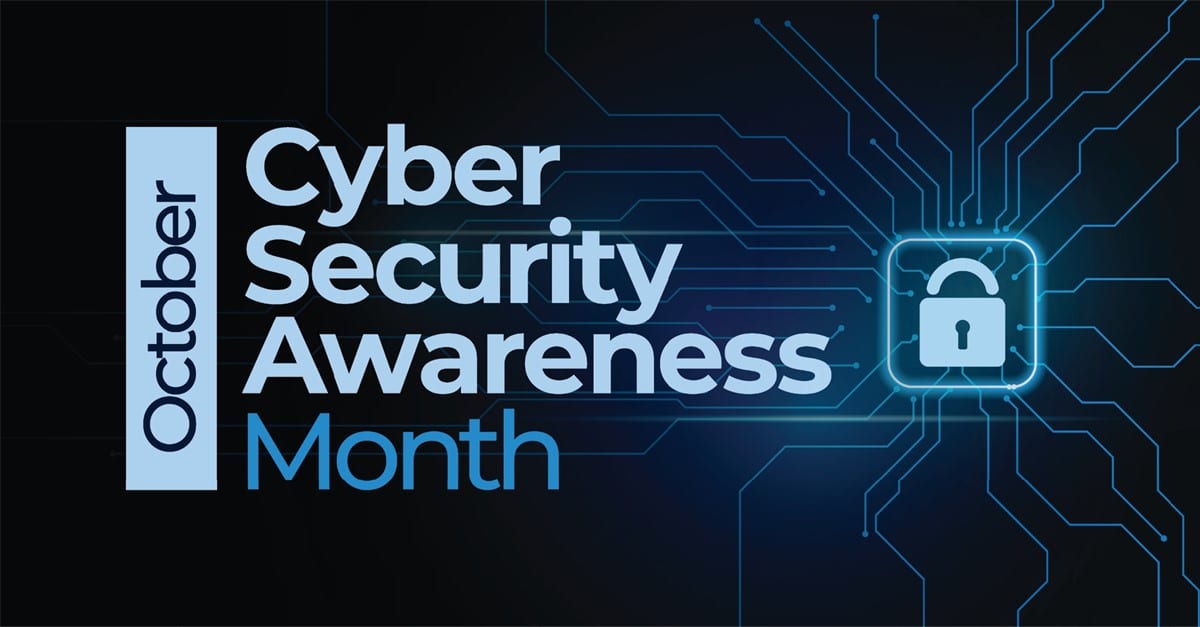In today’s digital age, ensuring the security of our online accounts and sensitive information is of paramount importance. Passwords are one of the first lines of defence against cyber threats, and yet, many people still use simplistic, easy-to-guess passwords and reuse them across multiple accounts. This can put individuals and their company at great risk.
Cyber Security Awareness month marks the perfect time to take stock and review your current position. Here, we discuss the importance of password hygiene and simple steps you can take to protect yourself and your company.
Importance of strong passwords
Passwords are the keys to our online kingdoms. They grant access to our email, social media, accounts, bank accounts, medical systems and much more. Cybercriminals are constantly developing new methods to steal this information, making it crucial in fortifying our defences.
Complexity is the key
A strong password plays a critical role in online security. It should be complex and unique. The longer the password, the better. Passwords created with common words found in the dictionary, dates of birth, pet names or other easily guessable personal information can put your account at a higher risk of being compromised. It’s also best to avoid using the same password across multiple accounts, as hackers often use the same password to gain access to several accounts at once.
Creating strong passwords
Creating strong passwords may seem tricky, but it’s actually quite simple. An easy way to create a strong password is by using a password manager, which will generate a unique password for you that is both complex and easy to remember. If you prefer to create your own password, you can use a long, easy-to-remember phrase that includes numbers, special characters and a mix of upper and lowercase letters. Avoid using common phrases or personal information in your password.
Multi-Factor Authentication (MFA)
Multi-Factor Authentication (MFA) adds an extra layer of security to your login process, by requiring another form of verification in addition to your password. This could be a fingerprint scan, a code sent to your phone or another form of MFA. Using MFA means that even if your password is compromised, a hacker would still need access to your other device or biometric data to gain access to your account. Setting up MFA on all important accounts is an easy way to further protect your data.
Regular password changes
Passwords should be regularly updated, especially on accounts that contain sensitive personal or corporate information. The frequency of password changes may vary by organisation, but in general, changing passwords every six months, if not more frequently, is a recommended best practice. Setting reminders to update your passwords in a password manager can ensure that your passwords stay current and strong.
Education and training
To protect your company from cyber threats, it’s essential to educate your employees about password hygiene. This includes training on how to create strong passwords, how to avoid phishing scams, and how to use MFA. It’s important to ensure that employees understand the risks of weak passwords and the impact that a data breach could have on your company. Regular training and reminders can help keep security top-of-mind for your team.
Simple yet affective way to protect your company
Password hygiene is a simple yet effective way to protect yourself and your firm from cyber threats. By creating strong passwords, using MFA, regularly updating passwords, and providing education and training, you can significantly reduce the risks associated with weak passwords. By taking a proactive approach to password hygiene, you can help ensure the security of your personal and corporate data.
For more comprehensive advice for your company, consider enlisting help from an ISO 27001 consulting company who can provide an external view on what measures should be put in place. The Inavate Consulting team of experts are able to provide essential guidance for your information security management system (ISMS).
Feel free to reach out to us today for assistance in implementing or enhancing an ISO 27001 certified information security management system, thereby ensuring the ongoing security of your data.







